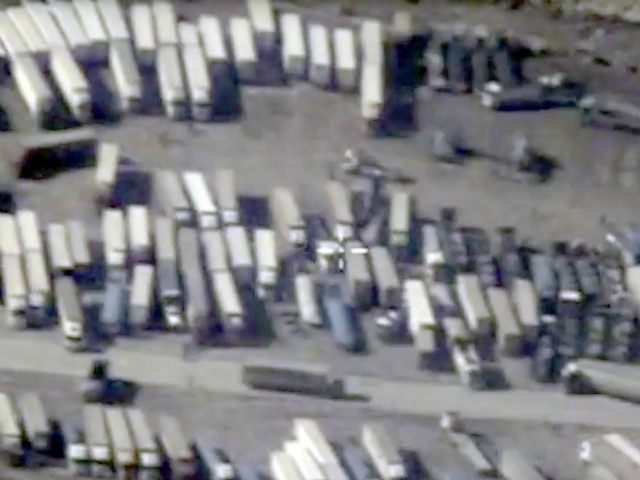A senior U.S. Treasury official claimed Syrian President Bashar al-Assad and clients in Turkey are a few who purchase oil from the Islamic State (ISIS/ISIL).
“ISIL is selling a great deal of oil to the Assad regime,” stated Adam Szubin, the undersecretary for Terrorism and Financial Intelligence with the Treasury. “The two are trying to slaughter each other and they are still engaged in millions and millions of dollars of trade.”
Szubin also confirmed the money trail leads to Kurdish regions and Turkey.
ISIS earns almost $40 million a month from these lucrative oil trades. In July 2014, experts estimated that oil earned ISIS at least $3 million a day, or roughly $90 million a month. The group captured numerous oil fields in Syria’s Diar Alzour province, including the Omar oil field. Almost a year later, the U.S. claimed ISIS was weakening, but militants “seized most of the Baiji oil refinery, the largest in Iraq.”
Other analysts said that ISIS only makes $2 million a month from oil, which is around $24 million a year.
“Our sense is that ISIL is taking its profits basically at the wellhead and so while you do have ISIL oil ending up in a variety of different places that’s not really the pressure we want when it comes to stemming the flow of funding — it really comes down to taking down their infrastructure,” explained Szubin.
The terrorist group’s oil trade roared back into the headlines due to the growing diplomatic dispute between Russia and Turkey. After Turkish forces shot down a Russian warplane on Nov. 24, Russian President Vladimir Putin claimed he had evidence that the government of Turkey bought ISIS oil.
“At the moment we have received additional information confirming that oil from the deposits controlled by Islamic State militants enters Turkish territory on industrial scale,” he said. “We have every reason to believe that the decision to down our plane was guided by a desire to ensure security of this oil’s delivery routes to ports where they are shipped in tankers.”
Turkish President Recep Tayyip Erdoğan denied the accusations, even offering to resign if Putin provided proof.
“As soon as such a claim is proved, the nobility of our nation requires [me] to do this,” he promised the world at the Paris climate change summit. “I will not remain in this post. But I am asking Mr. Putin, would you remain?”
The Russian Defense Ministry published alleged proof that ties Turkey to ISIS oil. Officials claimed the satellite image set “shows columns of tanker trucks loading with oil at an installation controlled by Isis in Syria, before crossing the border into Turkey.”
But Iraq’s Kurdistan Regional Government (KRG) said the pictures actually show their tankers of oil.
“Our Natural Resources Ministry has earlier announced that hundreds of tankers are carrying oil from KRG to Turkey. Oil is being shipped to Turkey with tankers and it is not a secret,” clarified Sherko Jawdat, the chairman of the KRG Parliament’s Energy Committee.
Szubin recommended that the Turkish government close its borders.
“There is no question that better security, closing the Turkish border to flows is a key component right now and we are looking to the Turks to do more in that respect,” he insisted. “It’s not just a financial issue — it is about foreign terrorist flows, it’s about weapons and it’s about financing. I think securing that border would pay major dividends in terms of intensifying the pressure and also reducing the threat.”
Significant evidence exists that the Turkish government has supported rebel groups against Assad since the civil war broke out four years ago. The Islamic State took over Azaz, a key town in Syria near the border of Turkey in September 2013. That is significant because Turkey “vocally supported the fight against forces loyal to President Bashar al-Assad and allowed weapons to cross into Syria on its southern border.” The capture of Azaz allowed easier access for the jihadists. Two months later, CNN featured Turkey’s secret jihadi route to Syria. An ISIS fighter told the Jerusalem Post that Turkey provides funds for the group.
Turkey joined the fight against ISIS this summer after a terrorist attack within Turkish borders. Evidence has surfaced indicating Turkish military assets are targeting Islamic State areas less than they are using their resources against the Kurds.

COMMENTS
Please let us know if you're having issues with commenting.